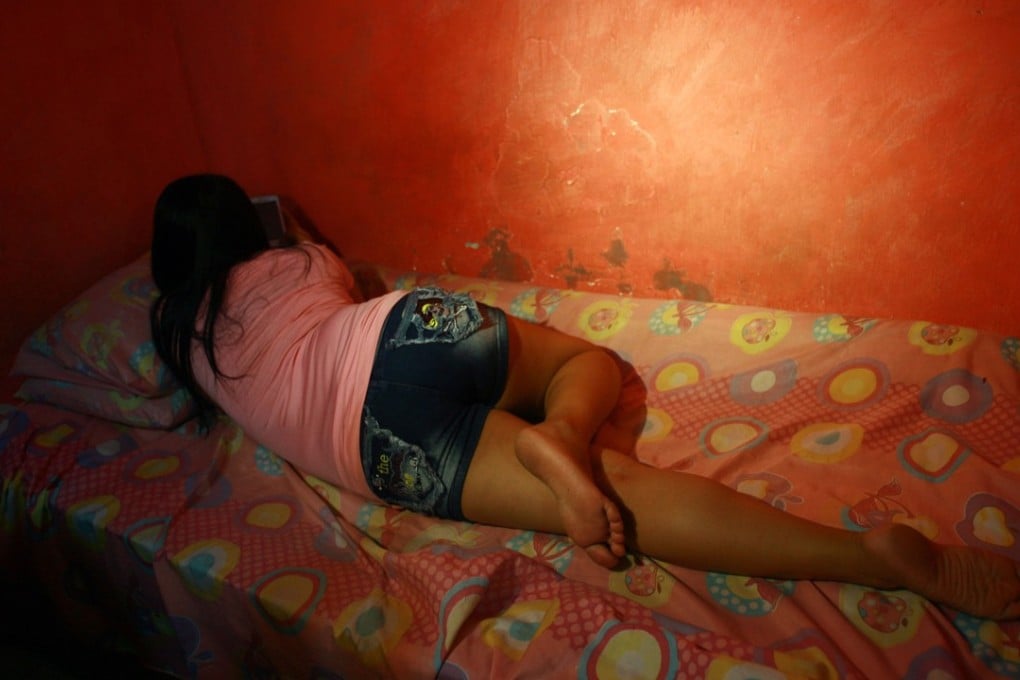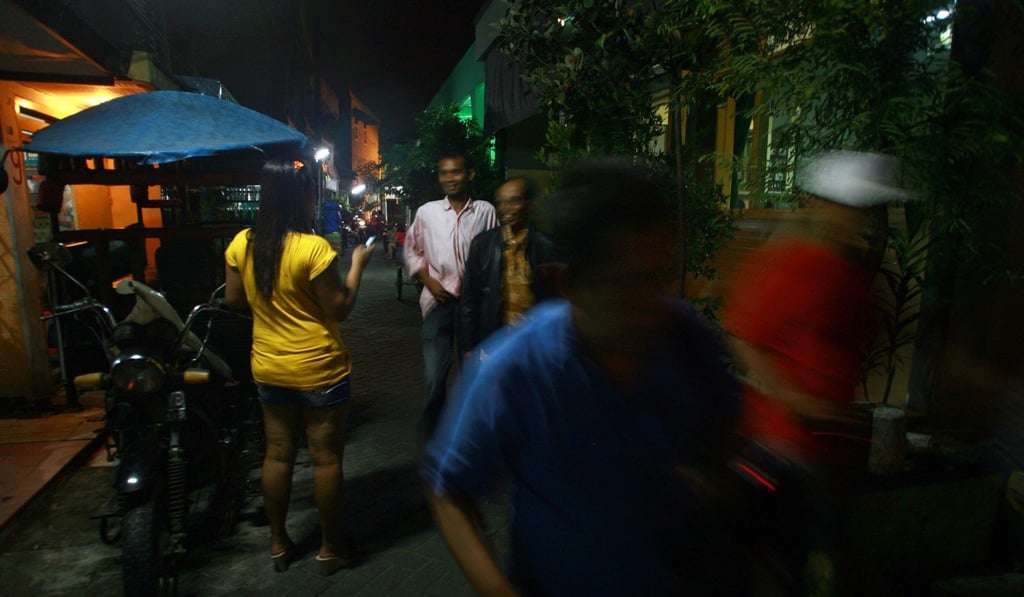How prostitutes benefit from a union in Indonesia: sex workers protected and taught new skills
- P3SY was set up to help prostitutes deal with the threat of sexually transmitted diseases, but now it also helps the women develop new skills and fights a government that want to close down all the country’s red-light districts

Rows of motorcycles are parked neatly at the entrance of an alley near Tugu railway station, in the Indonesian city of Yogyakarta. A surly bouncer sits in front of a small desk, collecting a spurious “cleanliness and security” fee from patrons entering the dimly lit passageway.
The alley leads to Bong Suwung. It is a red-light area, or “lokalisasi” in the Indonesian language. Tucked away behind the railway station – the city’s largest – it stays under the radar of most members of the public.
Transgender women find rare haven in Islamic boarding school
Still, on this Saturday night it is crowded. The only light comes from small stalls selling food and drinks on each side of the tracks. Groups of men hang around, while young woman gather in fewer clusters, giggling among themselves. Occasionally people move away as a train passes by.
Linda Nuraini is in one of the stalls, puffing on a cigarette while she chats to a man. She is wearing a red T-shirt and tight jeans. Petite and in her early 30s, Nuraini says she has been a sex worker in Bong Suwung since 2015.
“It’s always crowded on weekends. Some men are looking for services, but others just hang out here,” she says.

Like the other women plying their trade in Bong Suwung, the stakes are high for Nuraini. The threat of HIV/Aids and other sexually transmitted diseases is among a host of threats faced. So a year after she began working in the area she joined the Yogyakarta Women’s Sex Workers Association (Perhimpunan Perempuan Pekerja Seks Yogyakarta, or P3SY).